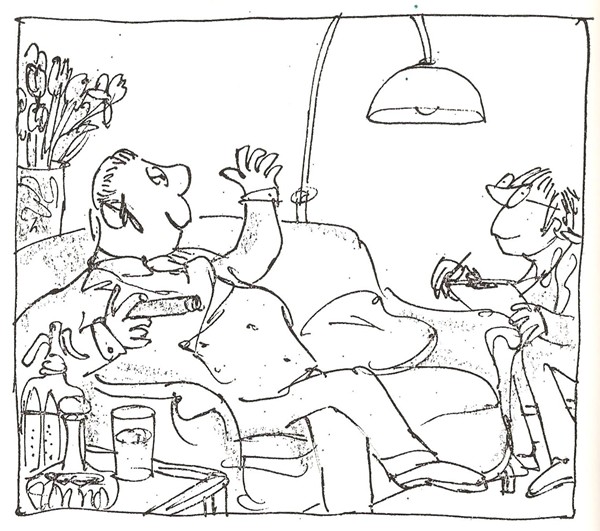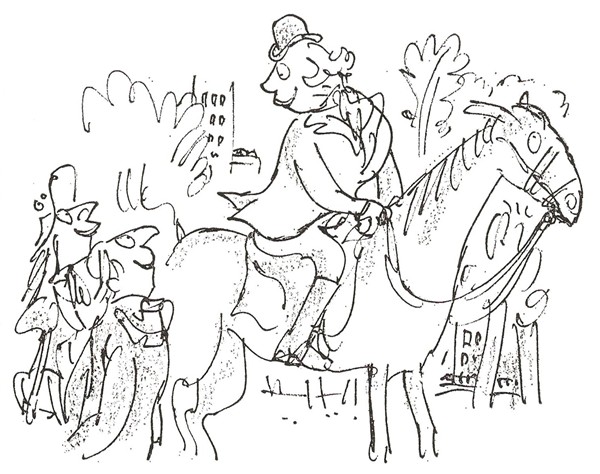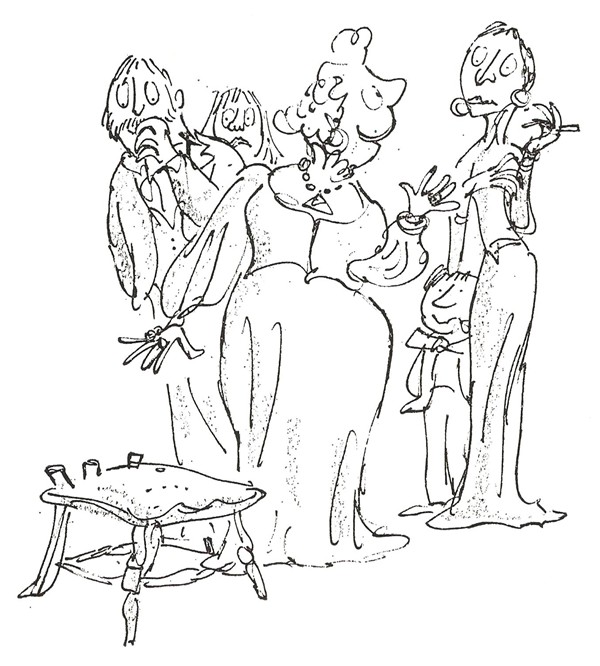The weeks thus passed
into eventful months, eventful months into significant years until some five epic-filled
years had passed.
The Smith children were
no longer dirty. They were neatly dressed, clean, and well-mannered in the presence
of strangers. Their noses didn't run and they stopped catching colds. Lucille
became a pretty, if affected, young woman of nineteen, and went to college. The
Smiths now owned their house and had had it completely renovated. It was now warm
in winter and cool in summer. There was new furniture, a grand piano on which
all the children practiced, a telephone with two extensions, a double-sized refrigerator,
a combination hi-fi set, an electric washing-machine and drier, a maid and two
cars.
Mr. Smith still drank as much as
ever but no one seemed to mind any more. All the neighbours took of their hats
now when he passed. Whenever something happened anywhere in the world they would
ask him to explain it and Mr. Smith always had explanations. And all the neighbours
remarked at how Mr. Smith had changed from a loutish drunkard into a prosperous,
charming and witty bon vivant.
When
a newspaper reporter asked him what was the secret of his success, Mr. Smith puffed
on his cigar and answered, "Hard work and taking advantage of opportunity
when it knocked."

The
reporter wrote it all down. "That," said Mr. Smith, "is responsible
for my being where I am today. But if the real truth were told ..."
"Yes?"
said the reporter who was going to write Mr. Smiths life story for a big newspaper.
"If
the real truth were told," continued Mr. Smith, "I'd have to say I owe
everything to my wife."
"You
are a very modest man," said the reporter.
"You
can also add that as another reason for my success - modesty," hiccupped
Mr. Smith.
Mrs. Smith had also become famous in her own right. Almost every
other day the society pages of the newspapers reported what she wore, where she
went, what she did and what she said. She went to teas, gave money to charity,
christened two battleships, and began to ride horses, which is something people
in the big cities often do when they get rich.

As
the Smith children grew older they wanted to move from their house to a classier
neighbourhood but their parents wouldn't hear of it. "This is where we achieved
our success, and this is where we'll stay," they said loyally.
The
children could understand their parents' sentimental attachment to the old house
but they couldn't understand why they refused to part with that old broken-down
kitchen chair that had no back.

"It's
an eyesore," the children said.
"It's
a family heirloom," Mrs. Smith explained, "and it means a lot to us.
The
children teased them about it, and their rich friends snickered at their attachment
to the ugly old chair, but Mr. and Mrs. Smith didn't mind that. |